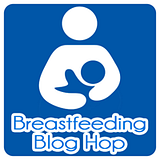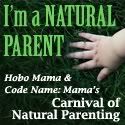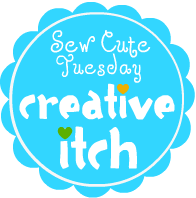
This week’s theme is unkind words or hurtful comments about breastfeeding. In Marah’s post at Diary of a Devil Dog Wife, she asks why can’t breastfeeding just be normal? That’s my gripe with the whole feeding-your-baby thing too. I’ve never really had any hurtful comments, but when I say “feed your baby,” do you picture bottles or do you picture a woman nursing? Honestly, even for me it’s 50/50. I would love to say that as a self-proclaimed lactivist who has breastfed two children, I don’t picture a bottle when someone mentions feeding a baby. But that’s not always the case. Bottles have become a symbol that represents everything baby. How many logos, signs, and ads have you seen for baby products or services that use a bottle?
Why is that?
When a baby is first born, most people breastfeed. In fact, according to the Centers of Disease Control (CDC), in the U.S., 74.9% of infants are breastfed at some point. The assumption is that it’s when they are first born. However, only 35% are still exclusively breastfed at three months, and 44.3% are still breastfed (with or without supplementation or solids) at six months.
I guess that’s the answer. Most people supplement or stop breastfeeding altogether. Almost 25% of babies are given formula before they are two days old. Baby T was—without my permission, either. His respirations were high in his first few days, and the nurses were afraid he would aspirate fluid if he breastfed, so they gave him formula through a feeding tube, then came and told me. I was irate. I immediately demanded a pump and pumped colostrum every 2 hours so I could feed my baby what he really needed to support his health and immune system.
Things are slowly changing, though. On the CDC website, it states that:
“Improving the health of mothers and their children is a primary goal of the Centers for Disease Control and Prevention (CDC). Protecting, promoting, and supporting breastfeeding, with its many known benefits for infants, children, and mothers, is a key strategy toward this goal.”
Some people are turned off by so-called lactivists. But lactivists aren’t a bunch of hippies touting that “breast is best.” Lactivism doesn’t (or shouldn’t) involve making people feel inferior if they don’t breastfeed. It should simply involve supporting and promoting what’s best for the health of our population.
The CDC’s tag line is: “CDC 24/7: Saving Lives. Protecting People. Saving Money Through Prevention.” The CDC is committed to helping people get and stay healthy. In my opinion, it’s an organization that provides objective information about everything from diseases to vaccines. Hopefully this kind of objective awareness will help more people to breastfeed their babies, making breastfeeding the norm and making bottles the exception.





















2 comments:
Great post! I really agree with the part about Lactivists taking on a supportive role. So many view us as extremists who think that any mother who has given her child a drop of formula is in the wrong - i thinks that this is rarely the truth. Really we just want breastfeeding education to be widespread so that we don't have to work our butts off for the public to view breastfeeding as what it is - NORMAL!
Wow. I'm actually super surprised at the stats for breastfeeding (even with supplementing) at 6 months. I thought it was a lot lower here in the US.
You already know how I see feeding - for me it involved breastmilk and a bottle. Here's my confession, though - I felt the need to point out to others that I was giving my child breast milk, not formula, if I was out feeding him in public. I don't mean shouting it out, but if I was talking to someone, I'd find a way to work it into the conversation. I was proud of breastfeeding and wanted people to know that a bottle didn't necessarily mean formula.
Post a Comment